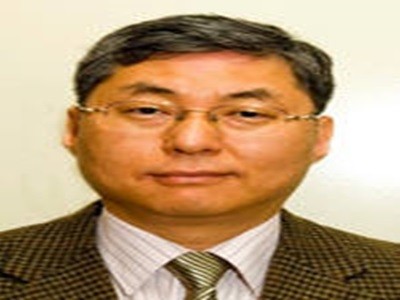South Korean research team has developed an AI (Artificial Intelligence) semiconductor that can recognize emotions and translate automatically on its own without any connections to outer servers. This semiconductor processes two artificial neural network with single chip and it consumes lesser power than current AIs and has faster speed than them.
Research team led by Professor Yoo Hoi-joon of KAIST (Korea Advanced Institute of Science & Technology) made an announcement that it developed UNPU (Unified Neural Processing Unit) with a startup fabless company called UX Factory. This chip is applied with various artificial neural network and has increased Deep Learning efficiency.
UNPU processes CNN (Convolutional Neural Network) that learns 2D data and RNN (Recurrent Neural Network) that learns data depending on time flow with single chip. Its energy efficiency and accuracy are set up differently depending on subjects so that it can display its optimal performance.
CNN is used to distinguish and detect objects within images while RNN is used to recognize images and voices and to understanding meaning of words. Previously, different chips were used depending on their purpose. However, they can increase speed and energy efficiency if they are combined into single chip.
Artificial neural network performs calculations through combination of neurons, which is expressed as accuracy. UNPU developed by the research team is freely controlled within 1 to 16 bits. Single chip can implement various neural network at low power and at high performance.
It is expected that UNPU will open up a generation of ‘mobile AI’ as it is an accelerated processor just for AIs. UNPU’s CNN’s calculation performance and RNN’s calculation performance are 1.15 times and 13.8 times better than the best current semiconductor respectively. Its energy efficiency is improved by 40%.

Because current AIs are based on software (SW), they needed to be connected to outer high-performance servers. They require huge amount of power and are limited with calculation speed. When UNPU is used, necessary AI calculations are all carried out within single chip. It can also be used for ‘offline’ devices and provides AI functions to these devices.
Research team also developed a system for a Smartphone that can recognize 7 different emotions of a person through UNPU. Whenever a camera is used to take a picture, this system can differentiate different emotions such as happiness, sadness, surprise, fear, and no emotion.
“We have developed a semiconductor that accelerates at low power in order to implement AI through mobile devices.” said Professor Yoo. “It will be used variously for awareness of objects, awareness of emotions, awareness of movements, and automatic translation.
Research team announced results of its research at ISSCC (International Solid-State Circuits Conference’ that was recently held in San Francisco. Its research was supported by Ministry of Science and ICT and Information Communication Broadcasting Technology Development Project.
“We are planning on large-scale projects that are for development of AI semiconductors with Ministry of Trade, Industry and Energy and we are planning to apply for preliminary feasibility study within this year.” said Director General Yong Hong-taek of Ministry of Science and ICT’s Information Communication Industry Policy.
Staff Reporter Song, Junyoung | songjy@etnews.com